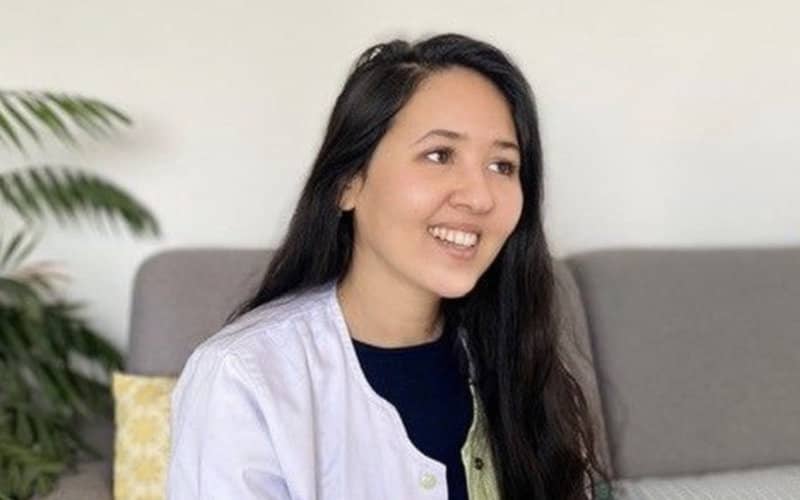Moroccan Pharmacist on COVID-19 Frontlines Granted French Citizenship

Khansaa Belkasseh, a 28-year-old Moroccan woman, is one of the foreign workers (nearly 700) "on the front line" who recently obtained French nationality. A favorable response was given to her naturalization request on December 23, 2020.
Arrived in France in 2010, Khansaa studied pharmacy and became a doctor in her specialty. She works in a pharmacy in the 11th arrondissement in Paris where she was "on the front line" of Covid-19 during the first lockdown. "I was much solicited like many other health professionals. Many treatments were interrupted in hospitals and patients came to see us. We were not necessarily prepared for this. We obviously had the mission to distribute and sell masks or gels, but we also had many other missions such as assisting battered women, listening to the psychological distress of some. The elderly felt isolated and abandoned," she confides to France info.
Last February, the young woman applied to obtain French nationality. "I didn’t ask for naturalization right away because I didn’t feel ready. I wanted to have a solid file. (...) When I felt ready, I sent my application to the Paris prefecture. I knew it was going to be long." Administrative appointments followed one another. "In August, I had an interview that went very well. The person checked my residence permits, my pay slips. She asked me a few questions about my knowledge of French, history," explains the Moroccan pharmacist.
In the wake of this, luck smiled on her. She learns that Marlène Schiappa, Minister Delegate for Citizenship attached to the Ministry of the Interior, proposed in mid-September that the procedures for accessing French nationality be accelerated for all persons who have "actively contributed" to the fight against Covid-19. "I did indeed hear about the minister’s proposal. So I sent the certificate of my work as a pharmacist and I was informed that my file would be examined as a priority," says Khansaa.
"I was told that if my naturalization was accepted, my name would appear in the Official Journal," she continues. "The first day of my vacation, I was really tired and I said to myself, too bad, I’m not going to set the alarm to watch the Official Journal, I’m going to sleep and at worst if I’m French at 7 o’clock I’ll still be French at 10 o’clock and there I’ll stay in bed," smiles the young woman. "Suddenly, they wake me up and I hear: there’s your name! There’s your name! It was the beginning of the best vacation of my life. It was the best Christmas present anyone has ever given me! It’s hard to do better," she exclaims.
"I remain just as Moroccan as French. I have a dual culture, I grew up in Morocco, but I always went to the French school in Casablanca. I have always been educated with a dual culture. France is my second country," explains the young woman. "I have always taken for granted that I was a free, independent woman with my freedom of speech and thought and that is thanks to France. This is not the case in all countries. (...) It is both an honor to be French and a tribute to France, which has helped me to build myself as I am," she concludes.
Related Articles
-

Moroccan Fugitive Sentenced: 3 Years for Daring Prison Break and Cross-Border Escape
11 September 2025
-

French Air Travel Chaos: National Strike Halves Flights, Disrupts Schedules Nationwide
10 September 2025
-

Algerian Doctor’s French Dream Turns Nightmare: Hospital Exclusion Sparks Legal Battle
9 September 2025
-

French Air Traffic Strike Chaos: Royal Air Maroc Issues Urgent Travel Advisory
9 September 2025
-

Marseille Mayor Faces Death Threats Over Couscous: Far-Right Backlash Ignites Debate on Cultural Tolerance
8 September 2025